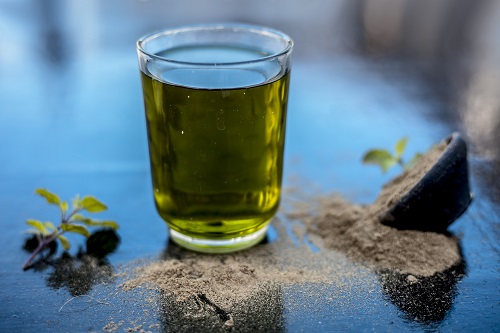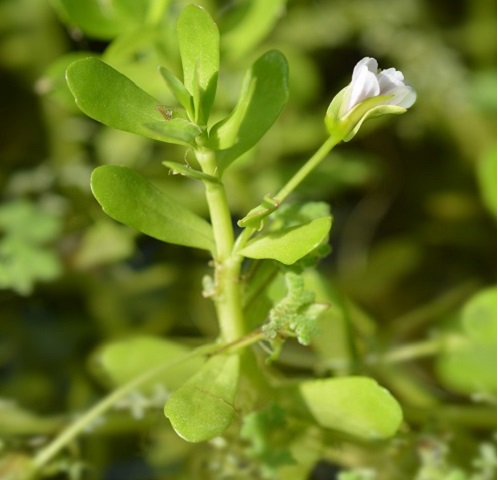
The human brain, an intricate marvel, orchestrates a symphony of processes that underpin our very essence. It not only manages vital life functions but also enriches us with higher-level capabilities such as memory and cognition. These are the faculties that empower us to think, reason, and interact with the world around us. Maintaining these mental abilities is crucial for overall well-being, especially as we navigate the different stages of life. Lifestyle factors, including balanced nutrition and managing stress, play a significant role in supporting our cognitive functions and helping us stay active and engaged in daily activities
In recent years, there has been a growing interest in natural compounds that support cognitive health, drawing upon traditional knowledge from ancient system of medicine. Bacon monnieri Wettst. (syn. Herpestis monnieri) , commonly known as Indian water sysop or Brahmi, is one such plant. Belonging to the family Scrophulariaceae, Bacopa monnieri has been historically valued for its potential role in supporting memory, concentration and overall brain health.
Brahmi has been used by ayurvedic medical practitioners in India for almost 3000 years. The earliest chronicled mention is in the ayurvedic treatise, the Charaka Samhita (100 A.D.), where it is recognized for its potential role in supporting mental wellness. Traditionally, Brahmi has been used to promote cognitive functions such as memory, focus, and mental clarity.
According to the Charaka, Brahmi acts as an effective brain tonic that boosts one’s capabilities to think and reason.
The Sushruta Samhita (200 A.D.) attributes the plant with efficacy in maintaining an acuity of intellect and memory. The Bhavprakasha Bighantu, commonly known as the Indian materia medica (1500 A.D.), cites the plant as a brain tonic that is effective in maintaining vigor and intellect.
In India, Brahmi is highly regarded for its traditional use in supporting cognitive and neurological health. While historical references acknowledge its significance in traditional practices, its role in contemporary use focuses on supporting cognitive functions and overall brain wellness. The name Brahmi is derived from the word “Brahma“, the mythical “creator” in the Hindu pantheon. According to Hindu concepts, the brain is the center for creative activity.


Thus, any compound that improves this faculty of the brain is called Brahmi. Other Sanskrit names for this plant are “bahuphene”, atiphena” and “phenavati”. The word “phena” means “foaming property”.
When mixed with water, bacopa plant parts produce a stable froth that is attributed to the saponins present in the plant. Pharmacologically, Brahmi (Bacopa monnieri) is known for its unique combination of natural constituents. Historically , these constituents have been recognized for their potential role in supporting cognitive health and overall brain function. Brahmi has been traditionally used to promote mental clarity, memory enhancement, and focus, contributing to overall cognitive wellness..
Bacoside’s, active principles responsible for improving memory-related functions, are attributed with the capability to enhance the efficiency of transmission of nerve impulses, thereby strengthening memory and cognition.
